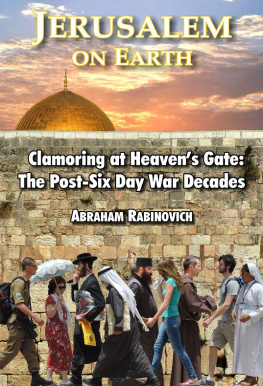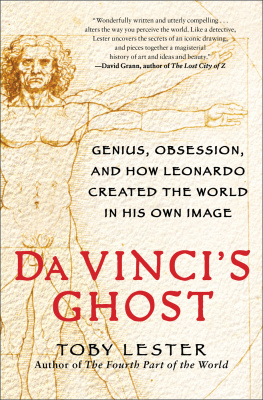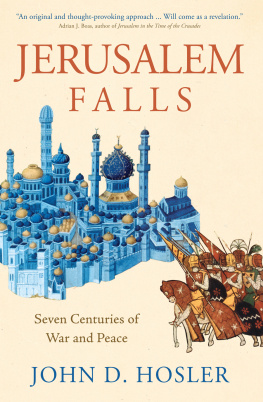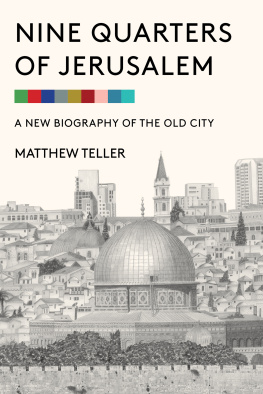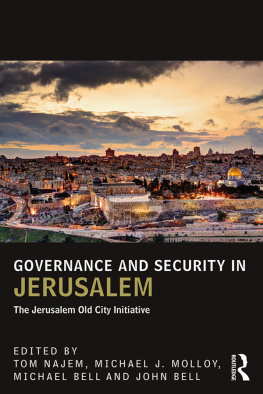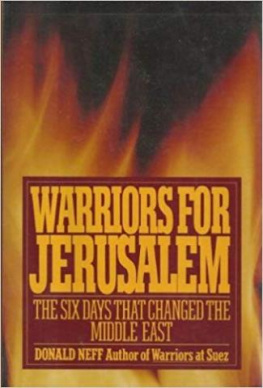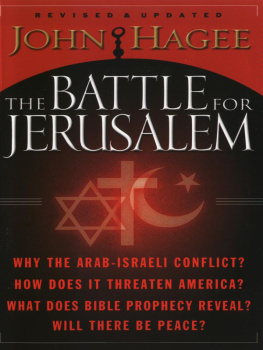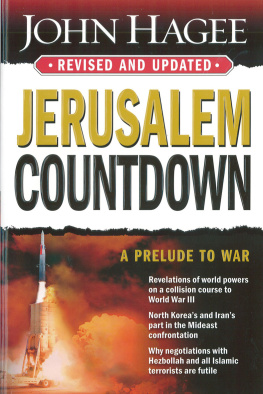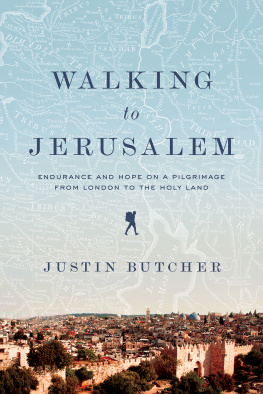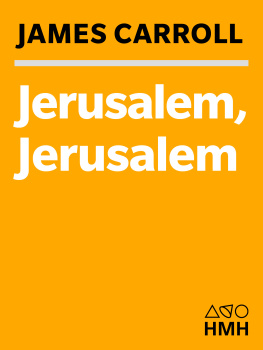JERUSALEM ON EARTH
Clamoring at Heavens Gate: The Post-Six Day War Decades
ABRAHAM RABINOVICH
Copyright 1988 by Abraham Rabinovich
All rights reserved. No part of this book may be reproduced or transmitted in any form or by any means, electronic or mechanical, including photocopying, recording, or by any information storage and retrieval system, without permission in writing from the Publisher.
Library of Congress Cataloging-in-Publication Data
Rabinovich, Abraham.
Jerusalem on Earth: Clamoring at Heavens Gate: The Post Six-Day-War Decades. Abraham Rabinovich. p. cm. Includes index.
Print ISBN 0-02-925740-9
eBook ISBN 978-1-78301-477-4
1. JerusalemBiography. 2. JewsJerusalem-Biography. 3. Palestinian ArabsJerusalemBiography. 4. JerusalemSocial life and customs. 5. Jerusalem-Politics and government. I. Title. DS109.85.R22 1988
956.9440540922dcl988-21301
[B]CIP
The author thanks the following publishers for permission to adapt work of his that they have previously published: Hadassah, The Jerusalem Post, The New Republic (reprinted by permission of THE NEW REPUBLIC, 1987, The New Republic, Inc.).
Contents
JERUSALEM ON EARTH
Clamoring at Heavens Gate: The Post-Six Day War Decades
PREFACE
When I started as a reporter at the Jerusalem Post in 1969, I asked to be assigned the city beat, which is usually near the bottom of the pecking order in a newsroom. I had arrived in Israel two years before to cover the Six Day War and seen Jerusalem transition from an urban backwater into the prime interface between the Jewish state and the Arab world. The local beat would be an opportunity to observe close-up how the city, textured by millenia of monumental history, assumed its new role. The beat was a license to explore the crannies of the ancient city, interact with Christian patriarchs and ex-terrorists, witness the Arab population adjust to its astonishing new situation, crack the code of the ultra-Orthodox Mea Shearim quarter and meet a world-class collection of eccentrics and visionaries drawn from the ends of the earth.
The book concentrates on the early decades after the war, when a new pattern of life evolved in a city whose two halves had been rejoined by force of arms. The political situation will be given its due in this account but the narrative will linger on individuals whose distinctive personalities, peculiarities or world views reflect the diverse and intensely human concoction that was, and is, post-1967 Jerusalem:
-- A tourist sets fire to Jerusalems al-Aksa Mosque, third holiest site in Islam, and comes close to touching off a new Middle East war. The worst is averted when swift police work reveals that the culprit is not a Jew but a psychotic Christian sheepshearer from Australia.
-- An ultra-religious Jewish eccentric who crossed into Jordan as a young man to seek arms for a rebellion against the secular Jewish state, engages his prosecutor three decades later in a debate before a packed hall on the German philosopher Nietzsche.
--A matchmaker who specializes in clients with problems attempts to bring together societys leftovers.
-- An Arab scholar, who used to work for Jordanian intelligence, is infatuated with the Hebrew language and publishes the first Arabic translation of the Mishna, the ancient compilation of Jewish law. Its descriptions evoke in him deep nostalgia.
-- The murder of two nuns, a mother and daughter, in a Jerusalem convent temporarily suspends hostilities between the White Russian church in East Jerusalem and the Red Russian church in West Jerusalem.
-- Danish-born Sister Abraham, who speaks 15 languages and navigates Jerusalem on a bicycle, becomes the first white woman to be accepted as a nun in the Ethiopian church. She solves a mystery.
---A police spy sent into the Mea Shearim quarter to penetrate a militant ultra-orthodox fringe finds unexpected friends.
-- A maverick American architect, stopping off in Jerusalem with a backpack and sketch book, derails massive building projects and saves the citys skyline before moving on.
Through it all we watch Mayor Teddy Kollek a former intelligence agent and gunrunner shepherd the city through one of the most dramatic periods in its history with skill, wit and a defiant belief that unification of the two Jerusalems can in the end work.
Prologue
The Neighbors
Haim Machsumi first saw the old man in the Arab headdress a year before the Six Day War. It was a summer morning and Haim was standing on the balcony of his house on the Israeli side of Abu Tor, a border neighborhood in Jerusalem divided by barbed wire and military blockhouses. The Arab appeared downslope among five deserted houses in the narrow strip of no-mans-land below Haim. The stone structures had been abandoned since Israels War of Independence 19 years before, when Israel captured the upper part of the hilltop village from the Jordanians. The old man glanced up at Haim, 40 yards away, and hurried down into the Arab part of the village.
When he returned a few days later, it was with several younger men. Afraid that they might be Jordanian soldiers in civilian clothing, Haim summoned Israeli soldiers from a nearby blockhouse. The soldiers told him the Jordanians had been permitted to reoccupy the houses in no-mans-land in return for Israels construction of a road on adjacent Mount Zion. The road had enabled Pope John XXIII to be driven to the holy sites on the hill during his visit to Israel a few months before. It was one of many gentlemans agreements over the years that Israel and Jordan quietly arrived at in order to make life in the divided city tolerable. Nevertheless, soldiers were posted in Haims garden for a month to ensure that the abandoned house was being renovated as a residence and not as a military position. Women and children appeared after a few days and the Arabs began planting trees. It was evident that they had come to live.
One Sabbath morning, Haim was standing on his balcony enjoying the magnificent view of the Judean Desert to the east. Arab villages nestled in the landscape and a mile to the north the golden Dome of the Rock dominated the Old City. Suddenly the old Arab came out of the house downslope and looked up at Haim. They had looked at each other often before but had never spoken.
Sabah el Kheer, said Haim, Arabic for good morning.
The old man returned the greeting.
They were going to be neighbors, Haim felt, and they might as well be civil. After all, both families had children Haim had seven and the Arabs seemed to have at least as many and there was no point ignoring each another.
In the ensuing weeks, Haim and his wife, Rachel, exchanged greetings with other members of the Arab household. One day Haim saw the old man buying yogurt, ladled out of a large jar by an itinerant peddler. It was a scene familiar to Haim from his childhood in Iran. Can I buy some too? he called down in jest. The old man gestured towards the Jordanian blockhouse 50 yards away and said, The soldiers are watching. It was the first time they had actually conversed, and they took the occasion to introduce themselves. The old man said his name was Abu Ali.
Haim, who worked as a janitor in the Finance Ministry, had been living in his house since immigrating to Israel nine years before. He and his Jewish neighbors, likewise immigrants from Moslem countries, had been settled in abandoned Arab houses. Despite the spectacular view, not many Israelis were willing to live on a border that periodically echoed with gunfire. The government had settled immigrants along the border as a barrier against infiltration. At night, Haim would sometimes hear or see movement in the direction of the barbed wire. It seemed to be a crossing point for smugglers or spies or both.

